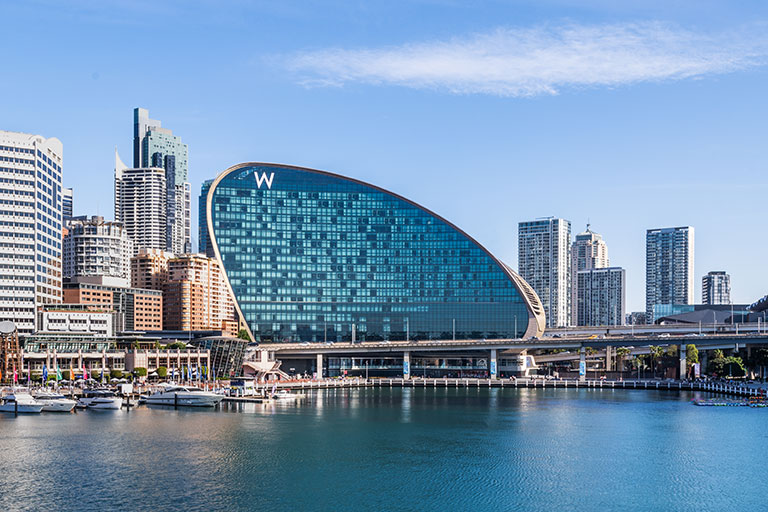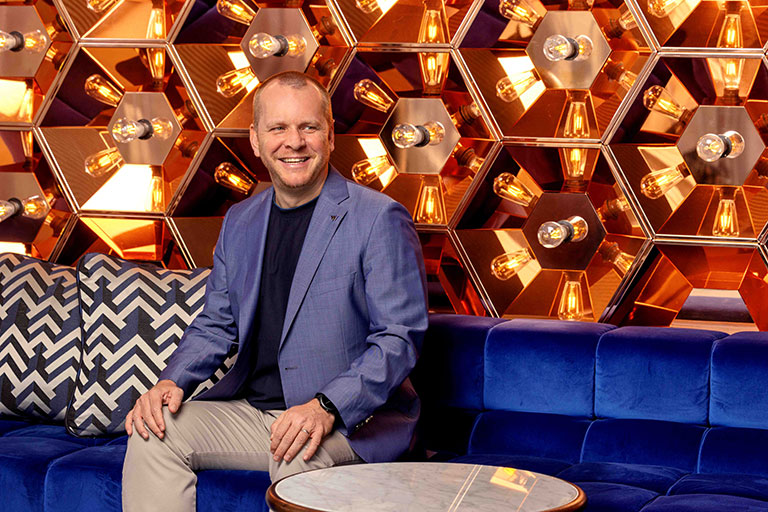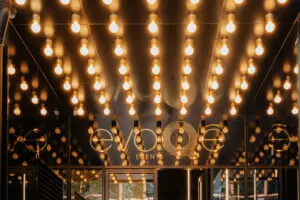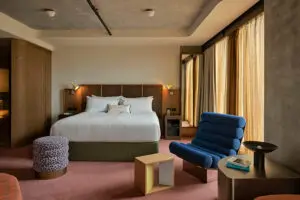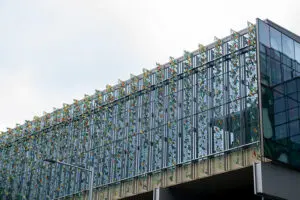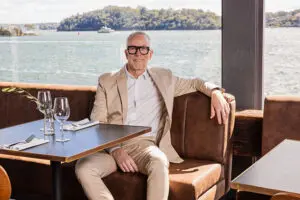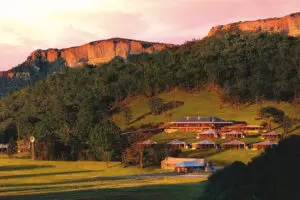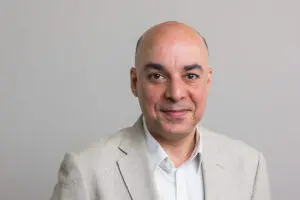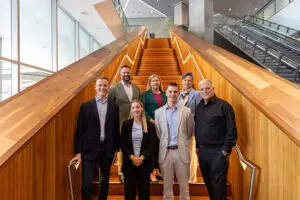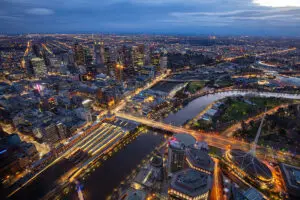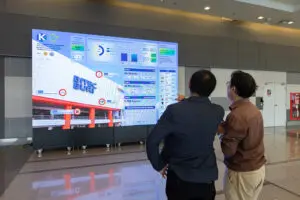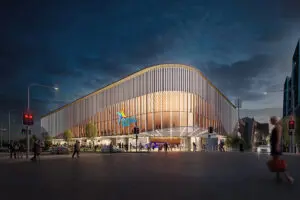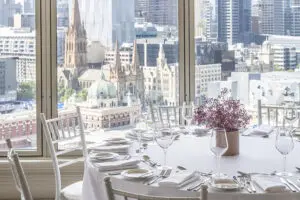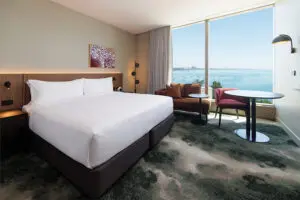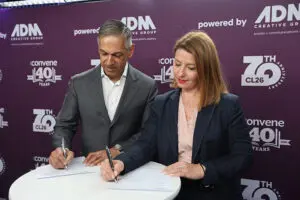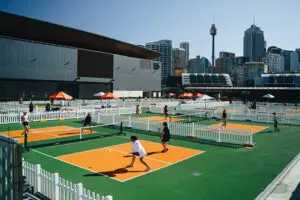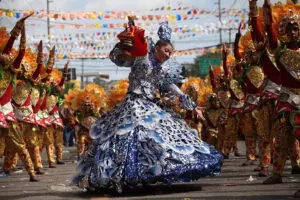“During my university times, I was playing professional football, soccer. I wasn’t very good at it, to be honest, but it limited me in my scope,” he jokes.
He eventually took inspiration from a book about international hospitality and decided it was for him.
“When I read that, I thought, this is what I want. So I finished hotel school in Holland and pursued an international hotel career. I went to China.”
China led to an opportunity in the Middle East. “That’s where my career really started,” he says. “I started at the Sheraton in Bahrain. I went from maybe the biggest country in the world to the smallest country in the world and that’s how I got into the Marriott family.”
Dubai had its share of challenges when the financial crisis hit in 2008. By then, Rosier was working at a hotel opposite the airport and when the financial crisis hit, he said people departed in droves, abandoning their cars (and the payment plans with them) and hopping on a flight out. He awoke one morning to the hotel car park full of abandoned vehicles.
“It was just the destination that was so ambitious and so flourishing and doing so well from a business perspective; overnight it was a crisis destination,” he says.
From Dubai he moved to Abu Dhabi, then he landed his first general manager role in Saudi Arabia. Building a lifestyle brand and navigating cultural differences was certainly a learning curve.
“The country has opened up a little bit since I was there, but it was just interesting opening a lifestyle property in a destination where lifestyle is not encouraged. It was a brand that was known for bringing people together in social spaces; all those things were illegal,” he explains.
“So I had to be very creative in the way we operated that property. It was my first hotel opening. That was my first time in Saudi Arabia, my first time as a general manager, so I tried to give it a little bit of a creative spin. Still within the boundaries of the law and the local culture but a little bit different than most properties there. That was interesting.”
Likewise, he navigated the atypical by employing women.
“In those days it wasn’t very common for ladies to work in hotels. About 25 per cent of our workforce were ladies, which brought challenges because they had to be separated from the men, but it created kind of a nice niche. So it was interesting that we were there at the forefront of that.
“We were one of the only hotels that played music in the lobby, we were one of the first hotels that opened the shisha bar, and there were so many things that we kind of tested the boundaries of what was allowed and not allowed which required me to be a little bit creative.”
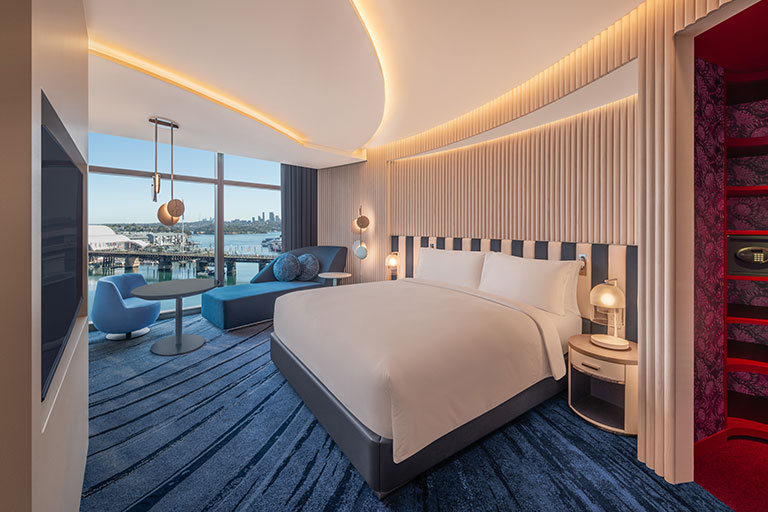
He moved on to Bali for the opening of the Westin and managed the W there too, pre-pandemic, before finding his way to Sydney.
The multiculturalism of Dubai, he says, is similar to Australia, but where we lead, he says, is in our focus on sustainability.
“Coming in, seeing that the entire team is very engaged in sustainability. The culinary team is battling food waste, all our produce is locally sourced…battling single-use plastic, how the design of the hotel is reducing energy. The whole setup is very, very favourable towards sustainability.”
He adds it’s also the collaborative nature of the industry he finds impressive in the way that the W Sydney works with venues such as ICC Sydney, local dining precincts and others for major events in Darling Harbour.
Specific to the property, he said it’s the values of the W that he enjoys.
“We encourage a little bit of fun and cheekiness, which seems to be going well with the Australian culture as well…At the same time, we really try to add value to the experience that people have in the city and I think that was the value and vision of the owner when he built the property.”
For planners considering the hotel, he says it’s the W Hotels’ ethos and design that sets it apart. Not too corporate-focused and encouraging fun and social interaction, he says it’s the “whatever, whenever culture” that differentiates it from other luxury brands.
From poolside events on level 29 to rooftop bars and even a 2 a.m. dessert bar experience, it’s the added non-traditional extras that he believes put the hotel in its own league.
“For corporates, it’s not so stuffy. It doesn’t have that suit and tie feel. People can unwind and relax a bit.”
